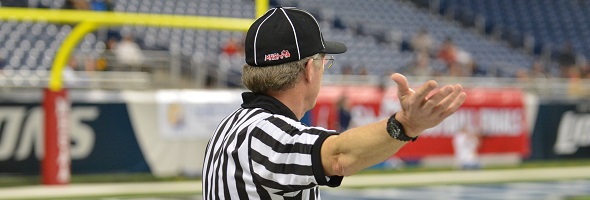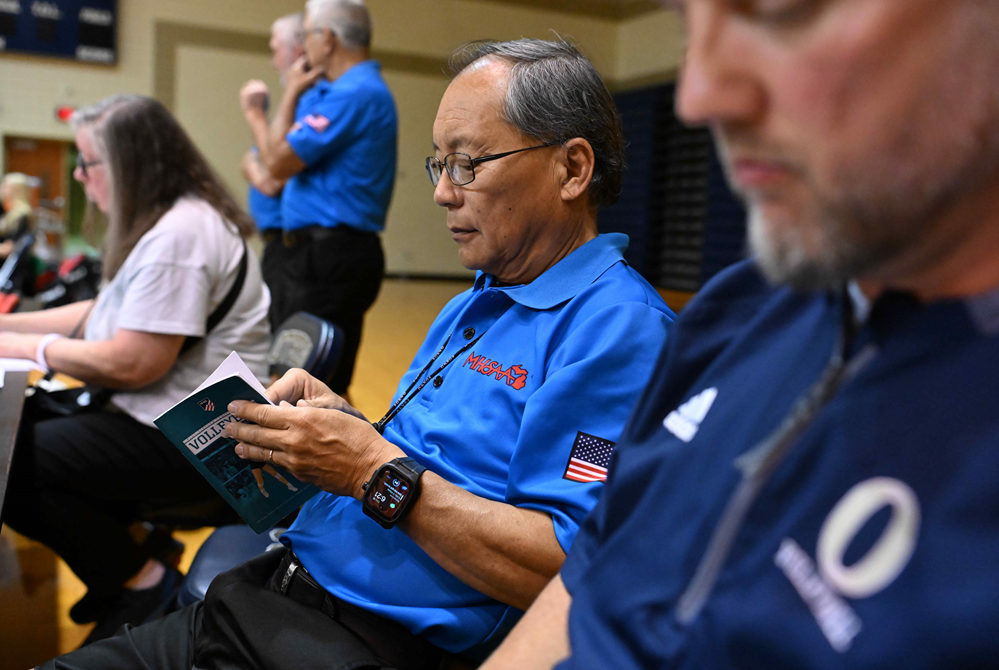
Be the Referee: Pass Interference
September 9, 2014
This week, MHSAA assistant director Mark Uyl explains one of the toughest calls to make on the football field.
"Be the Referee" is designed to help educate people on the rules of different sports, to help them better understand the art of officiating and to recruit officials. The segment can be heard on Mondays, Wednesdays and Fridays during the school year on The Drive With Jack Ebling on WVFN-AM, East Lansing.
Below is this week's segment - Pass Interference - Listen
Today we’re going to talk about one of the most difficult calls for any football official – pass interference. It’s important to know that whenever a forward pass is thrown beyond the line of scrimmage that both players – the offensive receiver as well as the defender – each have an equal right to make a play on the football.
Now, not all contact will automatically result in a pass interference foul. The official must judge if that early contact before the ball arrives has placed one of the two players at a distinct disadvantage. When that contact does create the disadvantage, you have a foul for pass interference. When the contact is minimal and is simply incidental, no foul has occurred.
Past editions
Aug. 25 - Targeting - Listen
Sept. 4 - Concussions - Listen

Be the Referee: Volleyball Serve
By
Paige Winne
MHSAA Marketing & Social Media Coordinator
October 22, 2024
Be The Referee is a series of short messages designed to help educate people on the rules of different sports, to help them better understand the art of officiating, and to recruit officials.
Below is this week's segment – Volleyball Serve - Listen
We’ve got a volleyball question for you today.
At the moment of the serve, which statement is NOT true:
- All players, including the libero, shall be in the correct serving order.
- All players, including the libero, are not required to be in the correct serving order.
- No player, other than the server, may have any part of the body touching the floor outside of the boundary lines.
- All players, except the server, shall be within the team’s playing court and boundary lines.
If you said – all players, including the libero, are not required to be in the correct serving order – you are correct.
At the moment of serve – all players must in the correct serving order and only the server can be outside of the playing court and boundary lines.
Previous 2024-25 Editions
Oct. 15: "You Make the Call" - Soccer Offside - Listen
Oct. 8: Roughing the Passer - Listen
Oct. 1: Abnormal Course Condition - Listen
Sept. 25: Tennis Nets - Listen
Sept. 18: Libero - Listen
Sept. 10: Cross Country Uniforms - Listen
Sept. 3: Soccer Handling - Listen
Aug. 24: Football Holding - Listen
(Photo by Gary Shook.)

